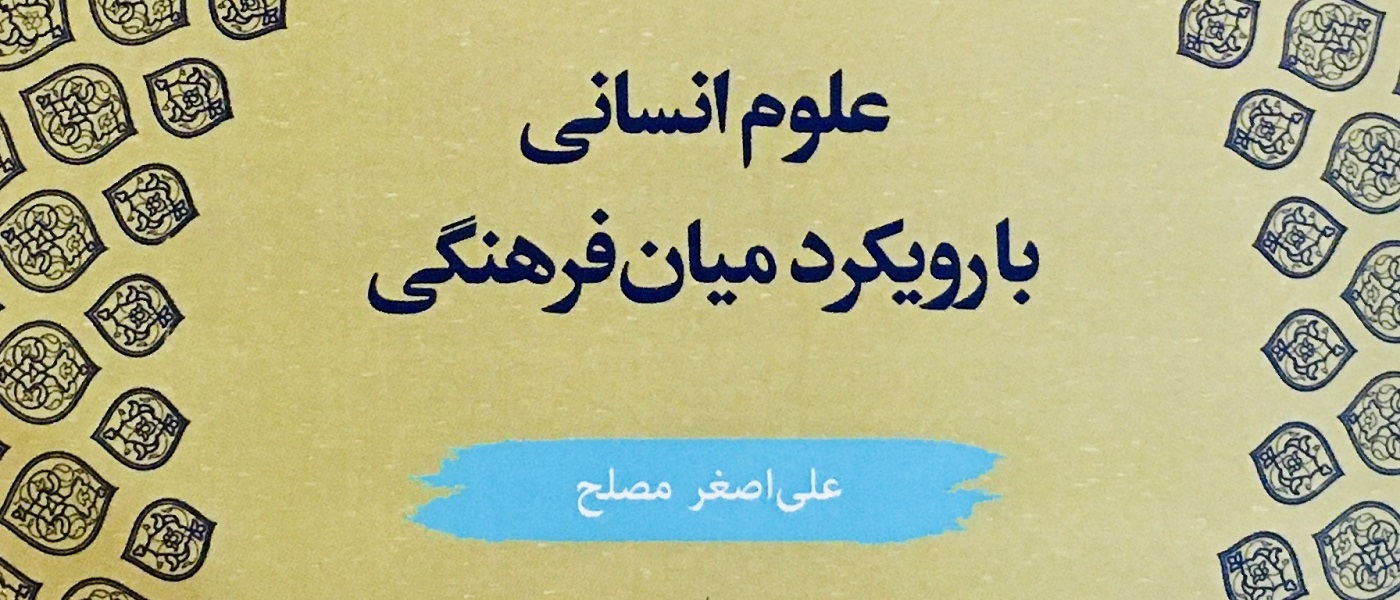
The book “Humanities with an Intercultural Approach” is a report on a research project of the same name conducted at the Institute of Humanities and Cultural Studies. The project is implemented by Ali Asghar Mosleh and has been completed in collaboration with Reza Dehghani, Farzaneh Ghadmiari, Mandana Chegni Farahani, Ahmad Rajabi, Ali Hatamian, Hassan Rahmani, Abdullah Salarvand and Mina Qajargar. The beginning of the book reads: “Considering the event of the Islamic Revolution of Iran and the desire for change at different levels, the discussion of the compatibility of the humanities with Iranian-Islamic culture has a forty-year history. During this period, different thinkers and researchers entered and presented different ideas and patterns. Leading research has been done with regard to this background and desire, and in view of the developments of contemporary philosophy and the newly formed tradition of “intercultural philosophy”. According to the orientation of intercultural philosophy, there is no absolute culture and measure for other cultures.
In order to face the common issues of cultures, a ground must be provided for each culture to move in a direction in order to offer its understanding and perception, and to try to enter into a dialogue with a deep understanding of others. “If in the field of science, especially the humanities, it makes sense to return to the basics and benefit from contemporary thought, intercultural philosophy has become a conceptual experience that scholars in both the humanities and sciences can benefit from. With reference to Dilthey’s views on the humanities and Gadamer’s account of understanding, the first chapter examines the historical roots of the emergence of intercultural philosophy in the context of modern philosophical thought. The said chapter is summarized as follows:
“Gadamer’s hermeneutic thinking is directly related to intercultural insight: for understanding in the face of the other is the most important thing. Later in the chapter, referring to the prevalence and importance of localization of humanities, it is suggested that considering humanities with an intercultural perspective can be a suitable approach in this direction.
The second chapter of the book deals with the crisis of humanities in the contemporary world. It begins with an overview of the emergence of the new world and the dominance of technology. By reference to Husserl’s critique of the European orientation of the humanities, this chapter argues that the crisis of the humanities and social sciences is caused by Eurocentrism of many Western thinkers, who dismiss other cultures as superstitious and myth-like.
The third chapter is dedicated to the introduction of intercultural philosophy. First, the intellectual and philosophical foundations of interculturalism—that is, communication, the critique of Eurocentrism and the confrontation with self-centeredness are described. The next section of this chapter introduces the pioneers of intercultural thought; Ram Adhar Mall, Franz Martin Wimmer, Heinz Kimmerle and Raul Betancourt. The chapter then examines what should and should not be considered as intercultural philosophy. The final part of this chapter provides an analysis of the of “philosophy” and “culture” and their relationship in the composition of intercultural philosophy.
The fourth chapter is entitled: “Intercultural insights in the direction of understanding cultures; Research Methods in the Humanities”. Here, interculturalism is considered as a quasi-method for the humanities. First, the concept of communication as a basic principle in intercultural philosophy has been studied and for this purpose, after expressing different patterns of interaction between cultures, it has been examined in which model space, dialogue and communication between cultures are possible. The following are the basic preconditions for intercultural dialogue. It is noted here that in intercultural philosophy, as important as understanding the other, understanding and misunderstanding are also taken into account. The final part of this chapter examines the analogous hermeneutic approach by Ram Adhar Mall in the intercultural tradition to find overlaps between cultures.
uThe fifth chapter calls for a rethinking of the categories and concepts in the humanities from an intercultural-philosophical perspective. These concepts include religiosity, personal and collective identity, personal unity and collective integration, cultural integration, diaspora, hegemony, moral imperialism, ethnocentrism, tolerance, fundamentalism, discrimination and terrorism. Instead of a euro-centric approach, then, this chapter argues that these concepts ought to be construed in dialogue with the Other.
In the sixth and final chapter, the future of an intercultural approach to humanities is disused. It is emphasized that intercultural philosophy is not a branch or a sub-discipline of the humanities, but rather a methodology to a globalized world. The purpose of this study is to invite researchers in other fields to a new and necessary approach, which is the intercultural approach. The end of the book refers to several articles that are examples of such intercultural approach in the humanities.

